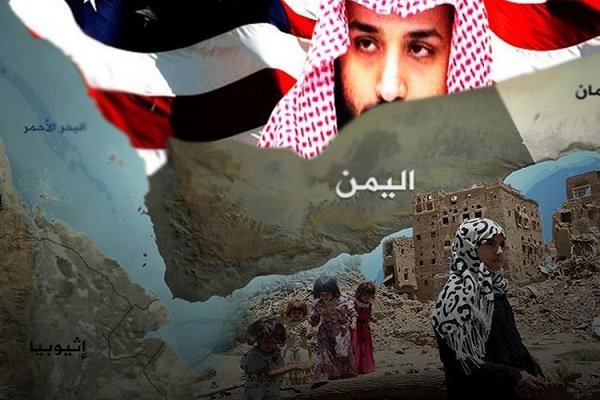By Fatemeh Salehi

TEHRAN - Yemen peace talk is to start in Sweden this week between the warring sides with the presence of the Ansarollah delegation. There is a great deal of speculation over the success of the talks as a result of the Saudi-backed coalition’s hindrances and the U.S. political and military interests in the continuation of the Yemeni war.
The talks will focus on agreements on exchange of captives, and reopening of Sana’a International Airport in order to halt the war and eventually running an election.
Mohammad Ali al-Houthi, head of Yemen revolution former President of the Revolutionary Committee or Revolutionary Council has recently said that the repetition of Saudi-led collation’s terms and conditions for negotiations is an attempt to avert the UN-led peace talks.
Al-Houthi believes the UN envoy in Yemen, after the failure of previous talks, has reached the conclusion that any conditions set by the Saudis and its allies were an impediment to the talks.
Previous talks planned for September in Geneva failed to get underway because the Saudi-led coalition prevented the Houthi delegation to participate.
According to an informed source, UN envoy to Yemen Martin Griffiths is expected to travel to Yemen, Sana’a in an effort to preempt another premature collapse of talks.
Iran has supported the UN-led peace talks in Sweden and called on all Yemeni parties to engage in constructive negotiations and take confidence-building steps to pave the ground for reaching a comprehensive agreement to end the pain of the Yemeni people.
Escalation of Saudi-led coalition attacks in Yemen on the eve of the Stockholm talks
While the humanitarian situation in Yemenis worsening by day and the UN issues warnings against the deteriorating conditions in Yemen and calls for the lift of blockade of Yemen, the Saudi officials are seeking to create impediment for course of talks.
However, the Saudi-led coalition continues to carry out their brutal attacks against residential areas in Yemen, with 14 dead and wounded during just one attack on a house in Al Hudaydah.
The Saudi-led coalition has intensified the blockade of the strategic port of Al Hudaydah, the serves as the only entry point for Yemen’s humanitarian aid. Riyadh is making every effort to create obstacles on the way of the Stockholm talks to serve the U.S. political and military objectives which calls for the continuation of the Yemeni War which broke out with the U.S. approval in the first place.
Under the pretest of military aggression against Yemen, the U.S. signed significant arms contracts with Riyadh and gained financial rewards.
On the verge of the Yemen peace talks, not only the Saudi attacks haven’t let up but have gained momentum in provinces of al-Bayda and Dhale and on common borders with Saudi Arabia and the West Bank.
Since November, the Saudi Arabian-led intervention in Yemen has carried out over 100 air strikes against the residential areas in Al Hudaydah and the attacks have intensified in recent days, particularly in the border areas and regions close to Sana’a.
Although the U.S. and Western countries seem to have raised criticism of Saudi Arabia over Yemen, in practice, they don’t take any concrete steps to lift the siege and cancel their arms contracts or boycott Riyadh.
Crown prince of Saudi Arabia Mohammad bin Salman considers the war in Yemen a proxy war between Iran and his country, although Riyadh has failed to achieve much in the past four years of battle against Yemen.
Although Yemen’s Ansarollah has repeatedly expressed willingness to stop their attacks against the aggressors and initiate talks, the Saudi-led coalition took no steps for peace talks.
As it appears now, the Stockholm peace talks on Yemen won’t reach a desirable objective. Although some analysts argue otherwise and believe following Jamal Khashoggi’s case, the Saudis are more apt to agree to stop the war to get out of the world criticism.

No comments:
Post a Comment